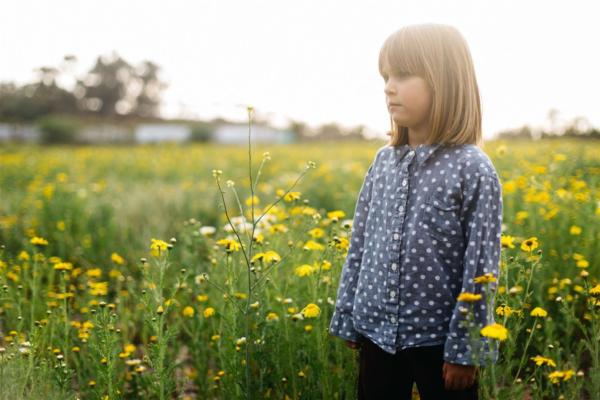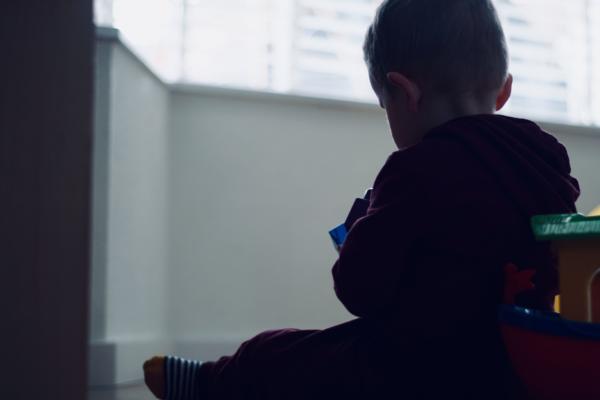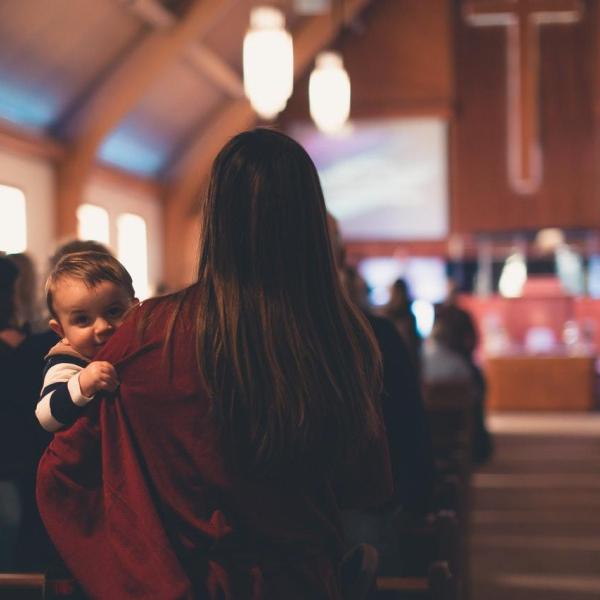What the Church needs to know about kinship care and how to support caring families
We want to equip the Church to better understand and support all families who provide kinship care and private fostering.
When a child cannot live with their immediate birth family, they may be looked after by a relative. This is formally known as kinship care.
In about half of all kinship care placements, children are looked after by their grandparents, but other relatives may offer care, particularly aunts and uncles and older siblings. It could also be that a family friend or neighbour is able to provide the home that children need, and this can be known as private fostering. Sometimes, carers in these situations can be described as ‘family and friend carers’ or ‘connected people’. The exact number of children in kinship care is unknown, but estimates using Census data suggest it could be somewhere between 120,000[1] and 162,000[2] children in England and Wales.
Depending on the circumstances, children may be cared for through kinship care as part of an informal arrangement made by their birth parents, or they are officially ‘looked after’ by the local authority and placed with kinship carers. In some cases, kinship carers may go on to have permanent care and parental responsibility for the child through special guardianship.
All in all, there are many ways that extended family and friends may be able to step in and provide the care that a child needs and every situation will be completely unique. But in every circumstance, there will be challenges and difficulties, and any individual or family that cares for a child with care experience needs love, understanding and support.
Recent research by the great team at Kinship tells us that too many kinship carers across the UK just aren't getting the support they need. Nearly 1 in 5 respondents to their recent survey said they felt lonely 'often or always'. 1 in every 5 survey respondents said they had never received any local authority support in their role.
If someone in your church is providing kinship care, Home for Good encourages you to do all you can to wrap around and support them prayerfully and practically, just as you would a foster or adoptive family, and the suggestions we’ve written about support here, here and here might be useful as you consider what you can do to help
But along with many similarities, there are differences too. Here are five things to consider as you reach out to support the kinship carers in your community.
1. Not only have the children suffered loss, the carers likely have too
Every child who comes into the care system experiences the trauma of loss and separation, even newborn babies. Understandably, this loss will have a significant impact as they seek to process and make sense of their grief. Foster carers and adoptive parents do all they can to help their children navigate this throughout their life.
Kinship carers who step up to look after children and young people will often also be experiencing loss.
Think of a grandparent whose own child is experiencing difficulty, be it addiction, health struggles or another challenge, and they step in to provide a home for their grandchildren – or an aunt who takes care of her nephew when her sister is unable to. Whatever the circumstances, there will be a level of loss and pain for the adult too. Yet they choose to selflessly lay aside their own emotions to be the stable, loving and nurturing person that the child they care for needs.
Be especially sensitive to this as you offer support.
2. Kinship carers often have little control over decisions
In the same way that foster carers are acting on behalf of the local authority, many kinship carers are also in this position, so significant decisions and long-term plans are ultimately recommended by social workers and determined through the court. While social workers often take carers’ feelings, experiences and suggestions into account as they put the plan together, this still may not influence final decisions.
This lack of control is hugely challenging.
This changes if and when a special guardianship order is made, as parental responsibility passes to the carers, but with this there can then be a loss of professional or financial support. So often, there are many aspects and challenges ongoing, yet kinship carers have little support and control in these complex situations.
3. Kinship care may not be for the long-term
While some children will be looked after by their kinship carers throughout their childhood, and hopefully into adulthood too, this may not always be the case. As circumstances and the needs of the children change, kinship care may not always be the right option – or decisions can be made for a different plan, which kinship carers may or may not agree with.
Whether or not the carer has come to the decision to end the placement, if a child moves in it will be incredibly painful for all involved, even if this is filtered with joy at a positive move for the child. But there may also be feelings of grief, guilt, anger, heartbreak, anxiety – the list really is endless as circumstances will be so varied and there are so many factors in the situation.
Don’t assume anything, and walk with kinship carers on their journey through its many twists and turns.
4. Kinship carers can often feel out of step or out of place
Given every situation is unique, it is understandable that kinship carers don’t feel they fit in anywhere. They can often be at a different point of life to other parents and carers of children of the same age, or be trying to navigate a unique set of circumstances like seeking to raise birth children alongside their cousins.
Home for Good knows that foster care and adoption are often not fully understood – and kinship care can be even less well-known. Many kinship carers can feel increasingly isolated as their lives need to move in a different direction.
If you are aware of kinship carers in your church or community, seek to draw them in and embrace their particular situation. Make things work for them, do whatever you can to help them feel welcome, seen and understood, without making light of the challenges they are facing.
5. Kinship carers are also caring for traumatised and hurting children
While it can be hugely beneficial for a child to find a home with someone they already have a connection with, it doesn’t negate what they have experienced. Children in kinship care may well have suffered abuse or neglect, or have existed for some time in an unsettled or chaotic environment. They too will have experienced trauma and may have attachment difficulties, FASD, or any number of other challenges.
Just as foster and adoptive families often seek to parent in a different way and fostered and adopted children will struggle with identity issues or other invisible needs, kinship carers are seeking to navigate this challenging path with the children they love.
Be a friend to the kinship carers you know – a friend who listens without assuming, encourages without judgement, and supports without wavering.
Home for Good stands with all who welcome children and young people into their home. We see you and all that you are doing for the precious lives you care for. Thank you.
As the Church together, let’s wrap around those who offer kinship care and ensure they are recognised, understood and supported.
Home for Good wholeheartedly recommends the great work of Kinship, who support and advocate for all those who offer kinship care in any form. Find out more about them here.
Related pages

What the Church needs to know about FASD
Foetal Alcohol Spectrum Disorders (FASD) are a reality for many looked after children and their families.
Read more
What the Church needs to know about invisible needs
Every Sunday, thousands of children go to church with complex additional needs that aren't as visible.
Read more
What the Church needs to know about trauma
Helping us to understand that all children in care or with a care background have experienced trauma, and how we can respond to support them.
Read moreYou might also be interested in

Articles
Reflecting on Good Friday
Despite the outward appearance of a crushing setback, Good Friday was a day of triumph, unveiling God's divine plan and the true nature of his reign.
Read more
Articles
The Church: a community of shared light
Our Northern Ireland and Nations’ Lead, Roger Cooke shares some reflections on fire, community and the Olympic Games.
Read moreI would like to find out what is
going on in my area







